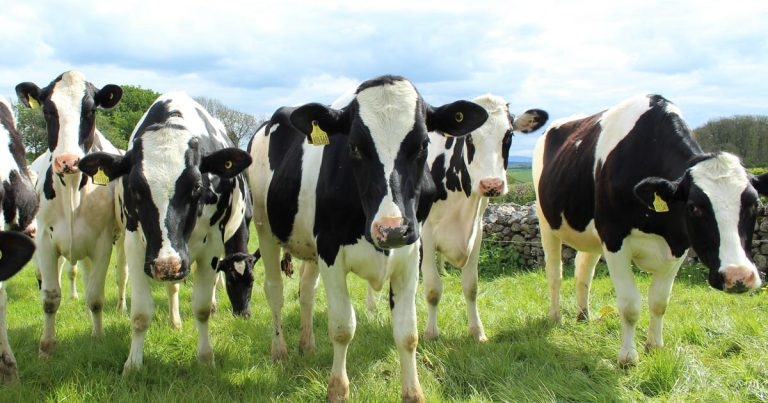21 Oct 2021
Frank Mitloehner – professor of the department of animal science at the University of California, Davis – tells BCVA Congress level of methane impact on atmosphere over-exaggerated by factor of four.

Image © CallyL / Pixabay
The impact of cattle farming on greenhouse gas emissions may have been vastly overestimated, according to research presented at BCVA Congress 2021.
Addressing congress, Frank Mitloehner – professor for the department of animal science at the University of California Davis – argued that methane’s impact on the atmosphere has been over-exaggerated by as much as a factor of four due to the way greenhouse gases in the atmosphere are currently tracked.
Speaking to attendees at the Newport conference on 15 October, Prof Mitloehner argued that the current matrix used by government bodies to determine impact on greenhouse gases in the atmosphere, known as global warming potential, did not take into account how much methane is regularly destroyed in the atmosphere.
Addressing congress, Prof Mitloehner said: “In my opinion there is really so much myth about methane.
“Most climate scientists would agree that the most important greenhouse gas by content and by the way that it is produced is carbon dioxide [CO2]. Globally, agriculture makes up almost 20% of all greenhouse gases, and this again is one argument that people who have beef with livestock frequently use.
“Many would say that nearly a third of all greenhouse gases come from livestock and the best way to address it is to eat less meat, and that is very disingenuous.
“There are people in the US and there are people in the UK who say that we just need to change what we eat because we all know that meat and other livestock are major contributors to greenhouse gases.”
The talk comes as governments from around the world begin preparations for the 2021 United Nations Climate Change Conference in Glasgow in November, where plans will be made to reduce various industries’ impacts on the climate.
Prof Mitloehner analysed data from the US Environmental Protection Agency to determine the total contribution of cattle to the amount of greenhouse gases in the atmosphere between 1990 and now, comparing methane to other notable greenhouse gasses: CO2 and nitrous oxide (N2O).
His research argues that energy production makes up more than 80% of greenhouse gases, whereas the beef section of the agricultural sector makes up somewhere between 2% to 3% of the total amount of greenhouse gases.
Citing research from the University of Oxford’s Environmental Change Institute, Prof Mitloehner described how: “Around 560 teragrams of methane is produced each year in the US. But methane is also destroyed, and we can see that its destruction makes up approximately 550 teragrams a year.
“In other words, 560 teragrams of methane are produced and 550 are destroyed by natural processes, and the differences amount to 10 teragrams – a number we still seek to reduce – but it certainly is different from the number that we read in the news and that is the first one, the number produced.”
Prof Mitloehner further detailed how the significant differences between the half-lives also was not represented within the current matrix, with CO2 having a half-life of 120 years and N2O having a half-life of 114 years, while methane has a half-life of 9.1 years.
Responding to claims that reducing our dependence on beef could have a significant impact on greenhouse gas emissions, the speaker explained how his research showed that even if the entirety of the US were to go vegan for one year, the overall reduction of emissions would only amount to 1%.
He said: “Everyone has heard that there are lots of people who have gone vegan these days to save the planet from climate change, so my colleagues and I have done the maths.
“They looked into what would be gained in respect to greenhouse gasses if you were to be a vegan for one year – what they found is that if you were to turn vegan for one year that would save 0.8 tons of greenhouse gases per year. Is that a lot? Recently I flew to the Netherlands at a carbon cost of 1.6 tons.”
The speaker added: “I would have to go vegan for two years just to offset the flight I had to the Netherlands the other day. If the whole of the United States were to do meatless Mondays – so forgo meat one day a week – we would reduce the carbon footprint in this country by 0.3%.
“If the entire country were to go vegan, like some people in your country have suggested, we would reduce our carbon footprint by 2%. So, it’s not nothing; it’s something, but I think we would all agree it is a very small number.
“In my mind the question, ‘Can we eat our way out of climate change?’ can only be answered with a resounding ‘no’. Even if we were to go to the absolute extreme, the reductions in greenhouse gasses would be not really beneficial for anyone.”